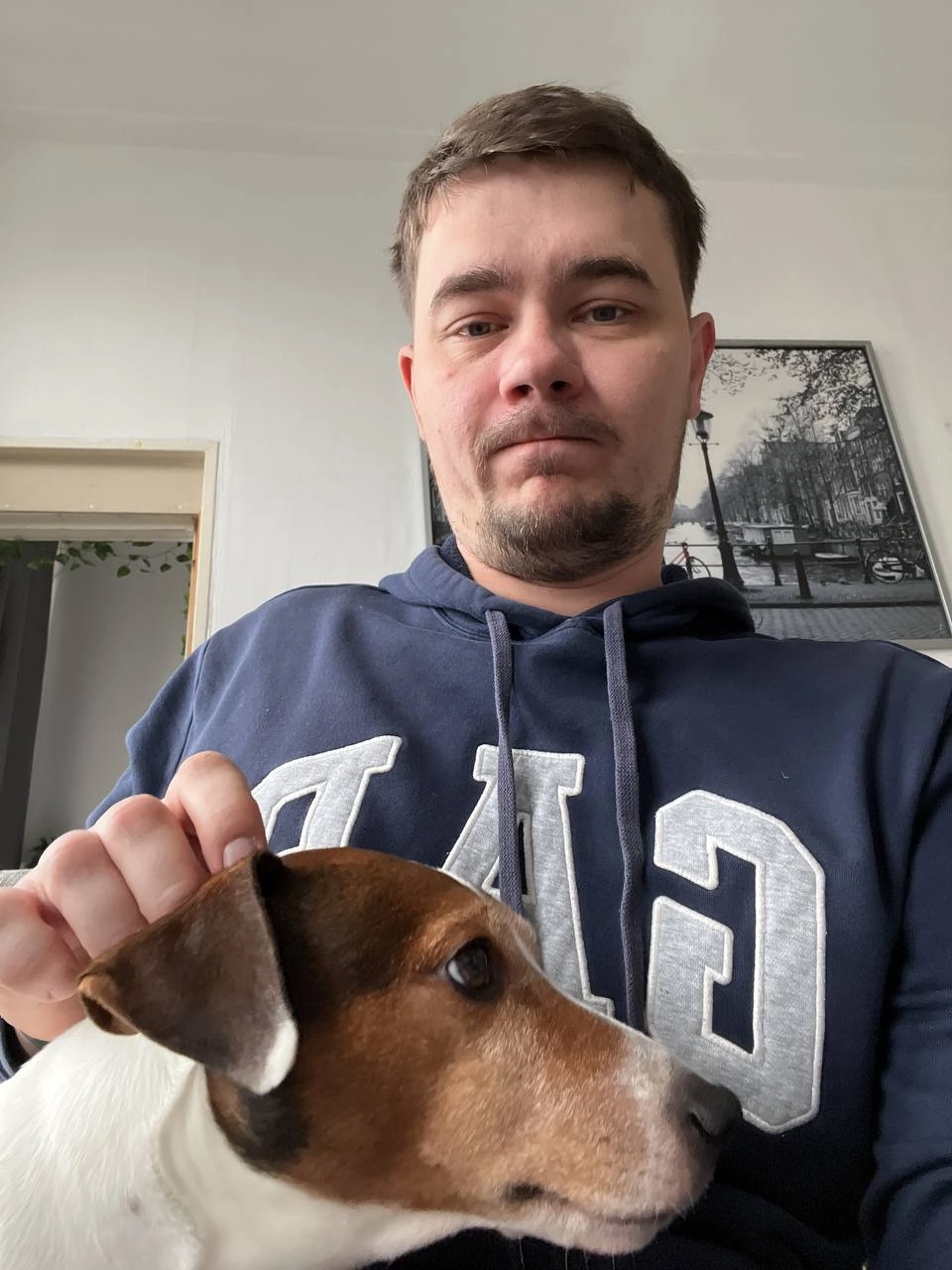Ekaterina
Student
23 years old
Teacher
Lera

B2
Ekaterina's level now
B1+
Ekaterina’s level of English at the time of entrance testing and interview
10 months
Ekaterina's studied at our school and is now preparing to take B2 First
I have expanded my active vocabulary, significantly enriching both active and passive vocabulary.
Success in mastering vocabulary and a significant amount of conversational practice have allowed me to speak fluently.
And I've started to take pride in myself
What motivated you to start learning English? What was your prior experience with learning the language?
The main motivator for me was the imposter syndrome, which I felt was already in its terminal stage. I’d had years of fairly casual tutoring, passed the English State Exam, and spent four years studying linguistics at university (which is actually the funniest part).
As for the results, it's embarrassing to talk about. It's a topic for psychotherapy sessions, but since I have to, here it goes. My level was slightly above average, and I had an enormous language barrier. After so many years of passive learning, I couldn't even hold a conversation, which led to a number of complexes. Keep in mind that my profession should be closely related to the English language :)
To sum up, I was a true impostor, someone who lacked both a) money for traveling to speak naturally and b) the desire to find conversation partners online (I rarely communicate with friends, let alone strangers). So, I came to the realization that either I pull myself together and start doing something (like looking for a tutor), or I continue to find proof of my uselessness, hit the bottle, and end up on the street with my useless higher education diploma.
How did you feel at the beginning of your studies? What was the most challenging aspect?
I've never had a particularly high opinion of my English skills, but objectively speaking, my level was okay. Maybe my communicative competence was buried somewhere deep down. Because of this, I felt utterly useless when it came to speaking during lessons. It even led to tears. There was no way I could try to rephrase what I wanted to say but couldn't. I just froze. Perhaps the most challenging part was believing in my abilities and trying to recognize systematic progress amidst my own over-self-critical and painful perfectionism.
I seriously despised myself for using basic structures, making tons of mistakes, and barely using new vocabulary or grammar.
How do you feel at the current stage in comparison to the starting point?
My English a year ago and now – it's like night and day. I won't even mention my self-perception.
My second weakest point was writing. Relatively recently during a lesson, it finally dawned on me that I CAN do it. This happened under artificially created extreme conditions: Lera gave me, say, 7-10 minutes to write two paragraphs on a given topic. I took on the challenge and wrote them. After that, it was like scales fell from my eyes, and I saw my potential. There have been more and more moments like these, and it's impossible to describe in words how I feel realizing these things. I kind of feel like I'm really doing well.
I have expanded my active vocabulary, significantly enriching both active and passive vocabulary; success in mastering vocabulary and a significant amount of conversational practice have allowed me to speak fluently; and I've started to take pride in myself
How do you organize your work with study materials outside of lessons?
Inside me, there's a six-year-old excited about highlighters, colored pens, and keeping notebooks. For a long time, I enthusiastically maintained an A4 notebook where I duplicated our lessons with Lera (for example, after the lesson, I would go over the listening again and jot down interesting vocabulary). I would paste homework texts with vocabulary analysis and grammar rules covered.
Regarding integration: I teach English to preschoolers and elementary school students myself, so I am immersed in English around the clock. The lessons have harmoniously fit into my daily routine.
How do you handle your homework?
I try to divide homework into stages, but in general, like most people, I end up doing most of the work at the last moment. I get a kick out of new vocabulary and I'm ready to learn it at any time of the day using Quizlet. The more vocabulary, the better. Sometimes, I sit down about 10 minutes before a lesson and go through a module to refresh my memory. I love my Quizlets.
What motivates you the most?
The upcoming exam. I have never felt as goal-oriented and focused as I do now. I believe that besides immersing yourself in a language environment, this is the most reliable way to get the maximum out of yourself within a certain time frame. And the progress I outlined in the previous answer is also incredibly motivating.
I'm very passionate about the learning process. This is one of those cases where you feel mature enough to approach the question of your own education consciously, so any difficulties only arouse enthusiasm.
What do you do besides studying materials?
At the beginning of this summer, when I had more free time, I made it a rule to read some English book for 30 minutes every day. I would set a timer and sit down to read. It felt like I was pushing myself to the limit, but after about half a month of this practice, I started speaking much more freely. I would highlight unfamiliar words if I wasn't feeling lazy, but besides that, I didn't do anything special with the book material. Somehow, it all accumulated in my head and found its way out during speaking. My brain was constantly engaged, and the right words would come to mind during conversations.
I also occasionally listen to Luke's English Podcast. I think Luke Thompson has a unique ability to express thoughts in various ways, and he can repeat the same thing ten different times while you're sitting there nodding along. (Fun fact: in one of his podcasts, he mentioned that Russians are statistically the largest group of listeners from different countries.)
Furthermore, FOR SOME REASON, I go through the Gold Advanced textbook on my own when I have time. For reference: it's a preparation manual for C1, while I'm only aiming for a B2 level. I do it solely because there's a lot of great vocabulary there. If I'm lucky, I can drop some cool word from there in class and quietly enjoy it. Still, I have extremely little free time to do anything beyond homework.
What can you recommend for other learners?
Here, I'll sum up everything I've said above. At some point, I was absolutely sure I had hit the ceiling, which turned out to be not very high. I was eating myself up from within, convinced that I was stupid and unteachable: I had a degree in Linguistics, spent 4 years working for it, but I didn't even dare dream of fluency. It's a funny meme but a scary situation. Thanks to Lera, I managed to realize the exact opposite in just under a year. And the most wonderful part is that this is just the beginning.
I want to end on an inspiring note: go for it. If I can do it, anyone can.
Master Your English Once And For All
With Our Help
еще истории наших студентов. Речь о достижении результатов
0%







